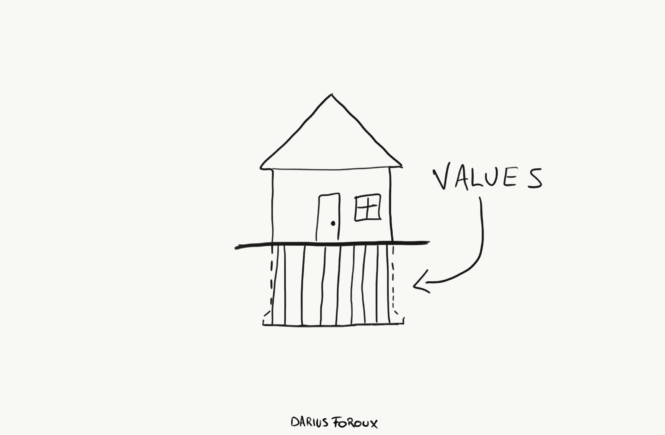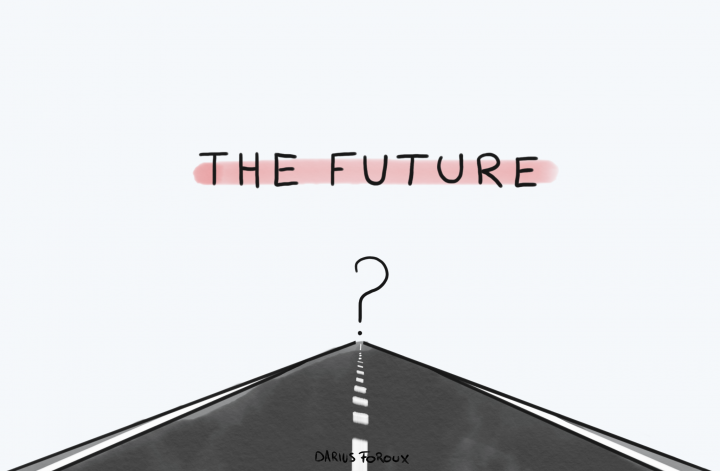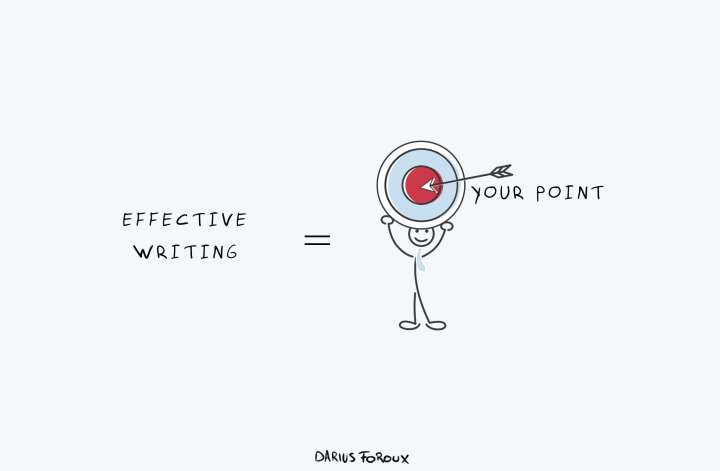Many things in life are the exact opposite of what we assume they are. For example, when it comes to personal productivity, we often think we need to work harder and do more to achieve more. That’s where counterintuitive life lessons come in.
More often than not, we need to do less. We need to narrow our focus.
In this article, I’ve summarized 5 of the most important counterintuitive lessons I’ve learned about different important life topics, running from achievement to mental health.
1. For every success story, there are countless failures
For every success, there’s an x number of failures. If there’s one hit song that everybody listens to for months, there are thousands of others that only a handful of people ever hear. That happens with all sorts of things; books, apps, and so forth. Thousands are produced each year. Only a handful succeed.
Failures are seldom recorded. History is full of success because no one cares about the failures.
This concept of overlooking the failures is called survivorship bias. People look at success and believe that they can somehow extract universal lessons.
The statistician and former trader, Nassim Taleb, explained why that’s not the case in his book, Fooled by Randomness:
“Mild success can be explainable by skills and labor. Wild success is attributable to variance.”
For example, just because Facebook’s CEO is a college dropout doesn’t make dropping out from college a good career idea. I’m sure there are plenty of other dropouts out there who aren’t as successful.
So every time you see a success story, always ask: “What about those who failed? What happened to them? Did they do the same things this successful person/company did, and still failed?”
This thinking allows you to see beyond what’s in front of you and create a more complete strategy.
2. Achieving big goals requires the same amount of energy as achieving small goals
When I talk about setting small goals, I mean goals that have a smaller potential. Like choosing to start a “safer” business that makes five figures, as compared to one that could potentially do 10 times more.
This idea is explained best in the book What It Takes: Lessons in the Pursuit of Excellence by Stephen Schwarzman, the billionaire CEO of the Blackstone Group, a global private equity firm:
“I had reached an important conclusion about starting any business: it’s as hard to start and run a small business as it is to start a big one. You will suffer the same toll financially and psychologically as you bludgeon it into existence. It’s hard to raise the money and to find the right people.
So if you’re going to dedicate your life to a business, which is the only way it will ever work, you should choose one with the potential to be huge.”
Our personal time and energy are limited. When it comes to creating life goals, it’s better to spend them on those that have the highest return potential.
3. Expecting you’re wrong leads to growth
It’s natural to want everything to go our way. When a person shares their ideas with the world — whether that’s through the articles they write, or music they produce, or the business they create — they naturally want many people to accept them.
But that’s not how the world operates. In fact, the west has become what it is today because we have a free world. People argue all the time about the “right” way to run politics, business, the economy, and so forth.
When you’re in an argument, you may find it annoying. But these arguments are an important aspect of capitalism. Our system works because there are so many conflicting agendas.
Trading in the Zone by the trader Mark Douglas explores this well. He talks about it from a market perspective. But the idea applies to all aspects of life.
“When we expect to be right, any information that doesn’t confirm our version of the truth automatically becomes threatening. Any information that has the potential to be threatening also has the potential to be blocked, distorted, or diminished in significance by our pain avoidance mechanisms.”
This pain avoidance mechanism is something natural to many people. Everybody wants different things. And no single person gets their way 100% of the time. So the key is to be self-aware and observe how certain information may not work well with our original vision.
This allows us to see things as they really are, and not just what we want them to be. Having this perspective grounds us. And we’re able to think of solutions that work not just in theory but also in practice.
4. Strategy is about planning AND execution
I used to think that strategy is about, “Big picture stuff,” like Michael Scott and Jim said in the TV show, The Office.
In the show, Michael and Jim become co-managers. One will run the “day-to-day stuff” and the other will take care of the long-term strategy things.
In reality, strategy entails both aspects. As management professor, Richard Post Rumelt said in his book, Good Strategy Bad Strategy: The Difference and Why It Matters:
“Bad strategy is long on goals and short on policy or action. It assumes that goals are all you need. It puts forward strategic objectives that are incoherent and, sometimes, totally impracticable. It uses high-sounding words and phrases to hide these failings…
Bad strategy fails to recognize or define the challenge. When you cannot define the challenge, you cannot evaluate a strategy or improve it.”
A lot of people think that strategy is all about the big picture. But strategy is also about being focused and practical. It puts a lot of importance on implementation. Because a strategy you can’t implement is no strategy.
5. Suffering is actually beneficial
Avoidance is humanity’s natural response to suffering. We’re wired to run from suffering and run toward comfort. But as the Buddhist monk, Thich Nhat Hanh, said in his book, The Heart of the Buddha’s Teaching:
“Without suffering, you cannot grow. Without suffering, you cannot get the peace and joy you deserve. Please don’t run away from your suffering. Embrace it and cherish it.”
Suffering and pain teach you something. That’s how people often come back better after a major failure. Like Steve Jobs becoming a better CEO after Apple kicked him out. Or David Goggins who had to go through various forms of suffering to become the athlete and author he is today.
Embracing suffering helps you to become stronger. As the NASCAR driver and Stoicism student Brad Keselowski said in an interview:1Source: The Manual
“Over time you start to realize that pain is your body flushing out weakness.”
Whether it’s the muscle pains during an intense workout, taking cold showers, choosing to make difficult decisions, and so forth — don’t avoid suffering. Embrace it.
Keep challenging your ideas
Most of the world used to think the Earth was flat. It wasn’t until explorers started circumnavigating the globe that they proved their old “common sense” ideas were wrong.
Ideas change. What we think is correct today may not be true at all. That’s why I always make the habit of questioning things and not taking life at face value.
Our first instinct or thought is often not the best one. As Socrates said, “the unexamined life is not worth living.”
To live an examined life, we must examine. Keep looking for the counterintuitive lessons in your life.




